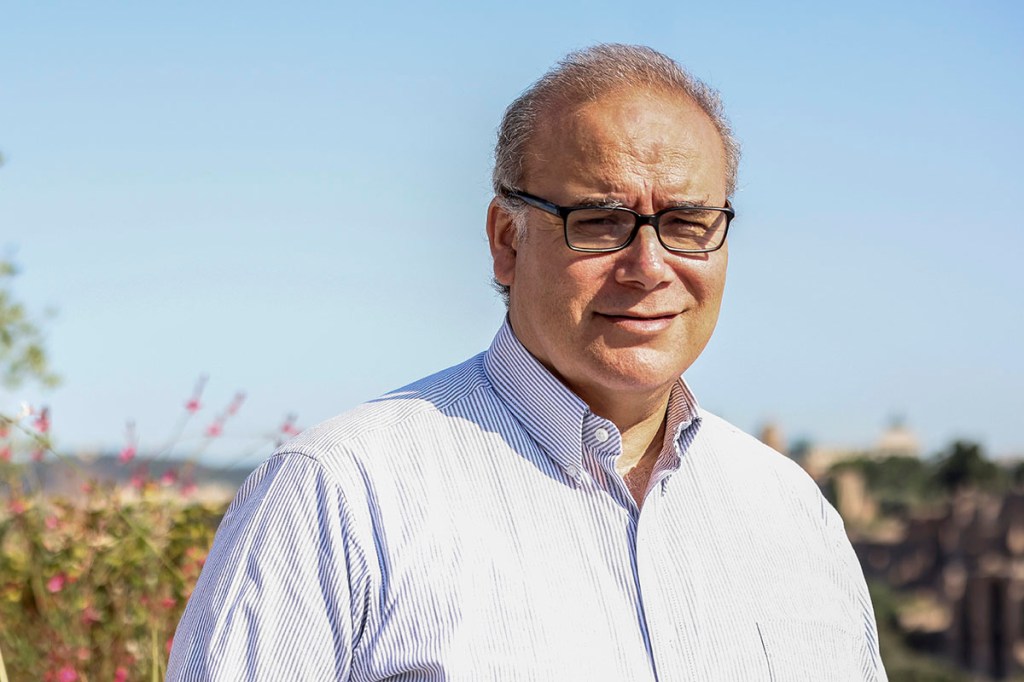Maximo Torero is an economist. Throughout his career at multilateral organizations and global research institutions, he has provided intellectual and strategic leadership to translate research into policy, fighting poverty and hunger.
About

Torero is currently the chief economist of the Food and Agriculture Organization of the United Nations based in Rome, Italy.
As the UN food agency’s top economic expert, Torero works with governments and partners to build resilient, inclusive, and sustainable agri-food systems. He focuses on strengthening shock resilience, advancing innovative financing mechanisms, improving access to healthy diets, and reinforcing supply chains. His work is grounded in decades of research on commodity prices, market volatility, and their impact on poverty and hunger. Torero leads FAO’s economic policy engagement in global processes related to the Sustainable Development Goals, particularly Zero Hunger, and serves as the organization’s analytical voice at high-level forums, shaping global dialogue on agri-food systems transformation. He served on the Munich Security Conference Food Security Task Force, linking food security with national security and geopolitical risk, and co-chaired the UN’s Global Crisis Response Group to the war in Ukraine, supporting the Black Sea Grain Initiative to reopen supply routes. He provides intellectual leadership for FAO’s flagship public goods, including The State of Food Security and Nutrition in the World.
Before joining FAO in 2019, Torero was executive director at the World Bank Group in Washington, D.C., representing Argentina, Bolivia, Chile, Paraguay, Peru, and Uruguay. From 2006 to 2016, he led the Markets, Trade and Institutions Division at the International Food Policy Research Institute, also in Washington. He led several major research and impact evaluation initiatives, including the evaluation of the Millennium Challenge Corporation’s $450 million investment in El Salvador’s Northern Transnational Highway and rural electrification programs.
Torero has published more than 40 peer-reviewed articles in top academic journals, focusing on poverty, inequality, and behavioral economics. His research has examined the impact of infrastructure, institutions, and technology on poverty reduction, and the role of geography, asset access, and market connectivity in shaping economic outcomes. He has authored or co-authored 14 books, including Food Price Volatility and its Implications for Food Security and Policy. He is currently on leave from the University of the Pacific in Peru, where he is a professor, and is an Alexander von Humboldt Fellow at the University of Bonn, Germany.
Torero has received multiple honors, including the Chevalier dans l’Ordre du Mérite Agricole from the French government and two awards from the Global Development Network for outstanding development research. His work has been cited by The Washington Post, CNN, BBC, The Economist, and The New York Times. He has written op-eds for outlets such as Foreign Policy, Project Syndicate, and Los Angeles Times.
He holds a Ph.D. in economics from the University of California, Los Angeles, and a B.A. from the University of the Pacific in Peru.
Download CV
Applied Research and Evaluation Programs
Torero’s work on applied research projects spans Latin America and the Caribbean, Africa (specifically, sub-Saharan Africa) and Asia in six areas: poverty alleviation, infrastructure, human capital, food systems, institutions, risks and uncertainties. He has a unique expertise on impact evaluation on initiatives linked to infrastructure, water and sanitation, electricity, information and communications technology, and public services delivery.

Rising Shocks Demand More Resilient Agri-Food Systems
Following COVID-19 and the war in Ukraine, global food prices surged. This matters because in most countries, food accounts for 25% of household budgets. Food prices shape voters’ political choices worldwide. Geopolitics is also reshaping agri-food trade. Trade disputes, logistical chokepoints, and regulatory barriers are fragmenting global supply chains, making them more expensive and less flexible.
Amid rising climate and geopolitical uncertainty, countries need to diversify production, suppliers, and trade routes. And this must be backed by reliable information systems, resilient infrastructure, and predictable trade rules.
Torero’s policy recommendations can be found in his writings, interviews, and LinkedIn posts.
